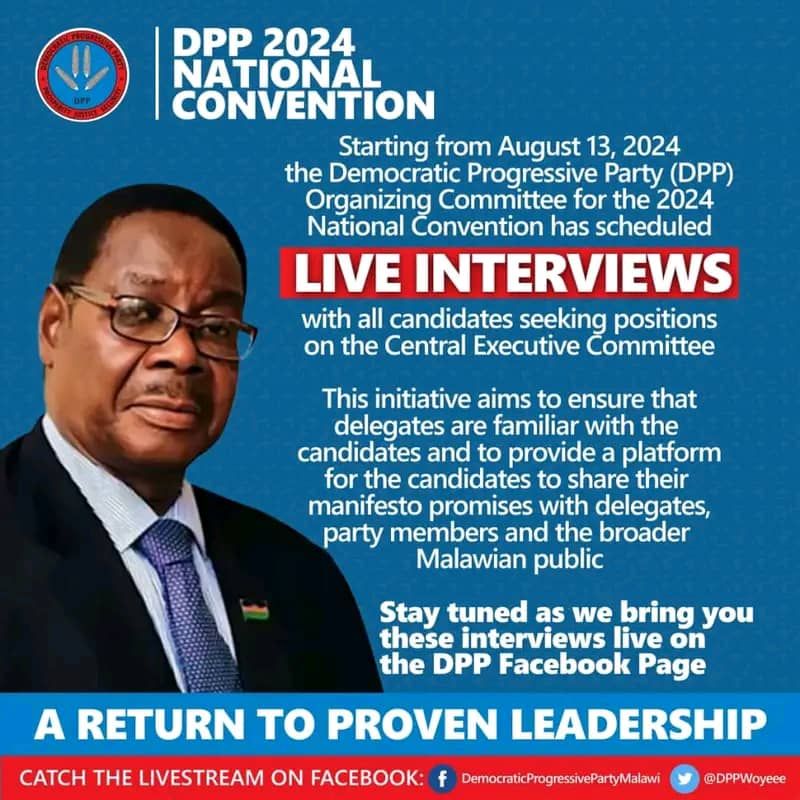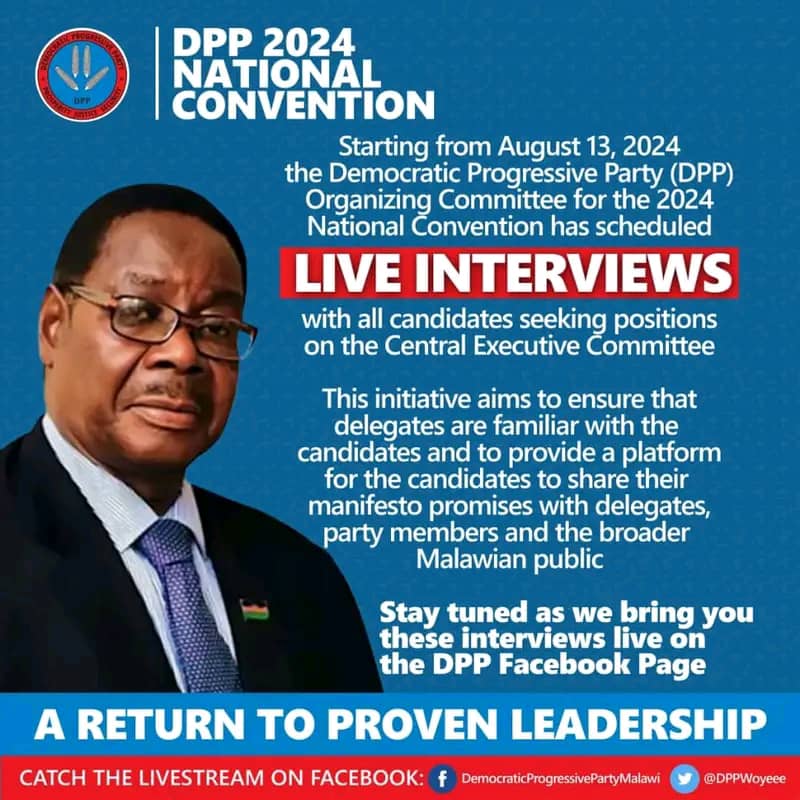By Burnett Munthali
In a significant shift within Malawian politics, the Democratic Progressive Party (DPP) has introduced live interviews on social media for potential candidates ahead of its convention. This groundbreaking strategy represents a new chapter in political engagement, aiming to enhance transparency and democratize the selection process. This article explores the aims and implications of this fresh approach, examining how it benefits delegates and reshapes the political landscape in Malawi.
The DPP’s decision to host live interviews on social media marks an exciting evolution in how political parties interact with their constituents and delegates. Traditionally, candidate selection processes have been closed and often opaque, limiting opportunities for broader involvement and scrutiny. By utilizing live interviews, the DPP aims to break down these barriers, offering a more accessible and interactive platform for potential candidates to present their visions and qualifications.

As the DPP convention approaches, the introduction of live interviews offers several key advantages to delegates:
Firstly, delegates can engage with candidates in real time, regardless of their location. This accessibility ensures that more voices can be heard and more questions can be addressed, making the selection process more inclusive.
Secondly, live interviews provide delegates with an opportunity to evaluate candidates’ responses and public speaking skills directly. This real-time interaction allows for a more nuanced understanding of each candidate’s policies, personality, and readiness for leadership roles.
Thirdly, by conducting interviews in a public forum, the DPP is promoting transparency. This openness helps to build trust among delegates and the general public, demonstrating the party’s commitment to fair and open practices.
Firstly, social media platforms enable immediate feedback from viewers, creating a dynamic dialogue between candidates and the electorate. This feedback can be invaluable for delegates, as it reflects broader public sentiments and concerns.
In conclusion , the Democratic Progressive Party’s adoption of live interviews on social media signifies a pivotal moment in Malawian politics. This innovative approach not only enhances transparency and engagement but also empowers delegates to make more informed decisions. By embracing technology and real-time communication, the DPP is setting a new standard for political processes, underscoring the importance of openness and accessibility in modern governance. As political landscapes continue to evolve, the impact of such progressive methods will likely reverberate across parties and regions, shaping the future of political engagement in Malawi and beyond.



